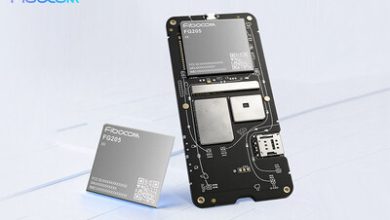Seed round co-led by General Catalyst and A Capital will expand platform that screens molecules 4x faster than DeepMind’s AlphaFold, advancing safer and more efficient crop protection
SAN FRANCISCO–(BUSINESS WIRE)–Bindwell, the agriculture-tech company using AI to accelerate pesticide discovery, today announced a $6M seed round co-led by General Catalyst and A Capital, with participation from SV Angel and Y Combinator founder Paul Graham. The company previously raised a pre-seed from Character Capital before entering Y Combinator’s Winter 2025 batch. With AI models that are 4x faster than DeepMind’s AlphaFold and can analyze billions of molecules, Bindwell tackles a key challenge for the global agriculture industry: consistent crop loss rates despite increasing pesticide use.
Despite decades of research, farmers today are losing the same share of their crops to pests as they did 30 years ago. Pesticide usage has doubled per acre over the last three decades, yet crop losses remain constant at 20-40%. As pests evolve and develop resistance, farmers are forced to use increasing amounts of pesticides to get the same results, damaging the environment and leading to even more pest resistance. At the same time, agricultural innovation has stagnated, with fewer than 20 new active ingredients approved in the past decade — down from 40 in the decade before that.
Bindwell, the first and only AI pesticide discovery company, applies proven drug discovery AI techniques to agriculture. The company’s models can predict in seconds what traditionally takes days of laboratory work, fundamentally changing the economics of pesticide development in an industry where R&D costs have increased 10x — from $30M to $300M per new pesticide — over the past 30 years. The funding will enable Bindwell to accelerate development of its first proprietary pesticide, expand its team of AI researchers and biochemists, and scale laboratory capabilities in San Carlos, California, where the company conducts biological validation of AI-predicted compounds.
“AI is revolutionizing drug discovery. Pesticide discovery is overdue for the same transformation,” said co-founder Tyler Rose, 18, who dropped out of high school senior year to launch Bindwell with Navvye Anand, 19, who left Caltech in his freshman year to focus on the company. “The agrochemical industry is stagnant, and it’s time for a change. Our mission is to develop safer, more targeted pesticides that are great at killing pests and nothing else.”
After meeting with the teens, Paul Graham decided to invest. “The founders [of Bindwell] will probably do alright,” he later posted on X. “They’re smart and have a good idea.”
The founders’ commitment to smarter, faster pesticide discovery springs from early experiences in or near major agricultural areas abroad — in China for Rose and in India for Anand — where both witnessed the pesticide problem firsthand.
“Growing up in India, I saw how pesticide overuse was damaging the environment without addressing the root issue,” said Anand. “Since then, increased pesticide use still has done nothing to reduce crop losses to pests. We created Bindwell to bring pesticide development into the modern age. This will benefit farmers around the world — and the planet.”
Bindwell has developed a proprietary AI suite that helps get around machine learning’s “black box” problem — the inability to know when AI predictions should be trusted, similar to how LLMs hallucinate incorrect answers — a critical barrier in applying AI to biology, since inaccurate predictions can waste millions in downstream R&D. The platform includes Foldwell, an AlphaFold replacement that’s 4x faster; PLAPT, which can scan every known synthesized compound in six hours; APPT, a protein-protein interaction model that outperforms existing solutions by 1.7x; and accurate uncertainty quantification that tells them precisely when to trust results and when more data is needed.
That combination of speed and scientific rigor is exactly what investors backed. “Bindwell’s use of AI to modernize pesticide discovery reflects our belief that technology can drive meaningful change across foundational industries like agriculture, improving productivity while reducing environmental harm,” said Neeraj Arora, Managing Director at General Catalyst. “Tyler and Navvye combine scientific rigor with a deep, authentic understanding of the agricultural challenges they’re tackling.”
Unlike traditional software companies, Bindwell develops and licenses complete pesticide molecules rather than selling AI models or software. The company maintains full control over its proprietary technology while generating revenue through intellectual property licensing deals with major agrochemical companies. The company is in talks with some of the top global players in the industry and expects to close its first deal soon.
Bindwell started as a research project in December 2023, when Rose and Anand — who met at the Wolfram Summer Research Program — started working on binding affinity prediction models. Their work was subsequently used in a Nature Scientific Reports paper for cancer drug discovery, validating the broader applicability of their approach.
Bindwell is now expanding its team of AI researchers and biochemists to accelerate safer, targeted pesticides. Explore open roles at https://bindwell.com/jobs or reach us at [email protected]
About Bindwell
Bindwell is using AI to build better pesticides and transform the agrochemical industry to make pesticide discovery faster, cheaper and more effective. Founded in 2024 by Tyler Rose and Navvye Anand, Bindwell’s mission is to develop safer, more targeted pesticides that kill only target pests while preserving beneficial organisms and reducing environmental impact. Based in San Francisco and backed by leading investors including General Catalyst, A Capital, Y Combinator, SV Angel, Character Capital and Paul Graham, Bindwell’s platform represents the first application of modern AI techniques to pesticide discovery. For more information, visit www.bindwell.ai.
Contacts



